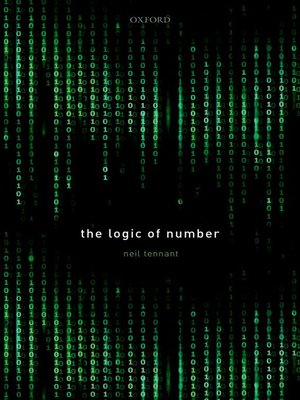
Sign up to save your library
With an OverDrive account, you can save your favorite libraries for at-a-glance information about availability. Find out more about OverDrive accounts.
Find this title in Libby, the library reading app by OverDrive.



Search for a digital library with this title
Title found at these libraries:
| Library Name | Distance |
|---|---|
| Loading... |
In The Logic of Number, Neil Tennant defines and develops his Natural Logicist account of the foundations of the natural, rational, and real numbers. Based on the logical system free Core Logic, the central method is to formulate rules of natural deduction governing variable-binding number-abstraction operators and other logico-mathematical expressions such as zero and successor. These enable 'single-barreled' abstraction, in contrast with the 'double-barreled' abstraction effected by principles such as Frege's Basic Law V, or Hume's Principle. Natural Logicism imposes upon its account of the numbers four conditions of adequacy: First, one must show how it is that the various kinds of number are applicable in our wider thought and talk about the world. This is achieved by deriving all instances of three respective schemas: Schema N for the naturals, Schema Q for the rationals, and Schema R for the reals. These provide truth-conditions for statements deploying terms referring to numbers of the kind in question. Second, one must show how it is that the naturals sit among the rationals as themselves again, and the rationals likewise among the reals. Third, one should reveal enough of the metaphysical nature of the numbers to be able to derive the mathematician's basic laws governing them. Fourth, one should be able to demonstrate that there are uncountably many reals. Natural Logicism is realistic about the limits of logicism when it comes to treating the real numbers, for which, Tennant argues, one needs recourse to geometric intuition for deeper starting-points, beyond which logic alone will then deliver the sought results, with absolute formal rigor. The resulting program enables one to delimit, in a principled way, those parts of number theory that are produced by the Kantian understanding alone, and those parts that depend on recourse to (very simple) a priori geometric intuitions.







